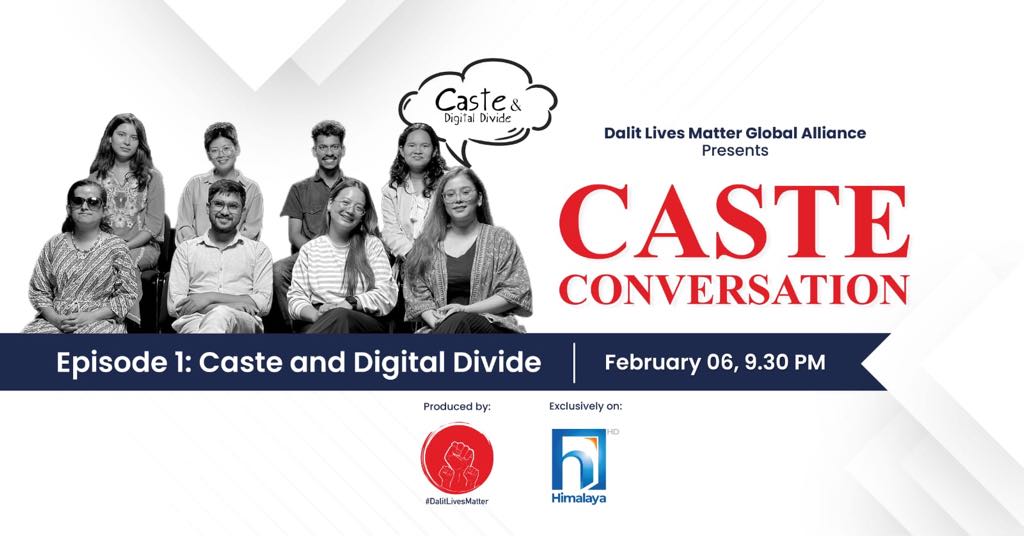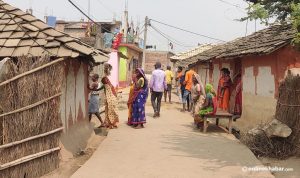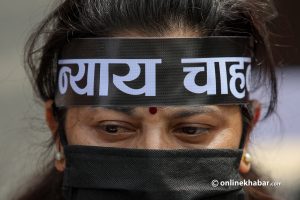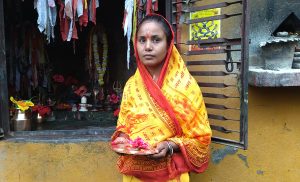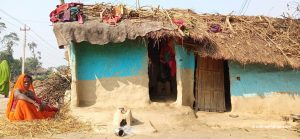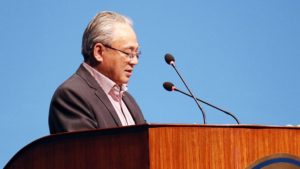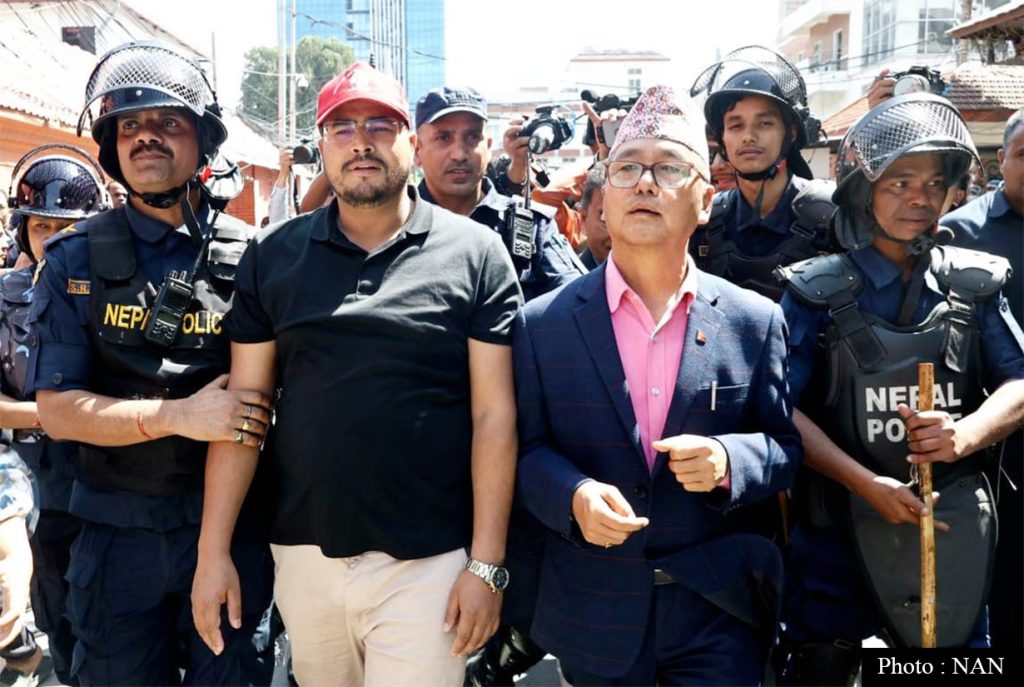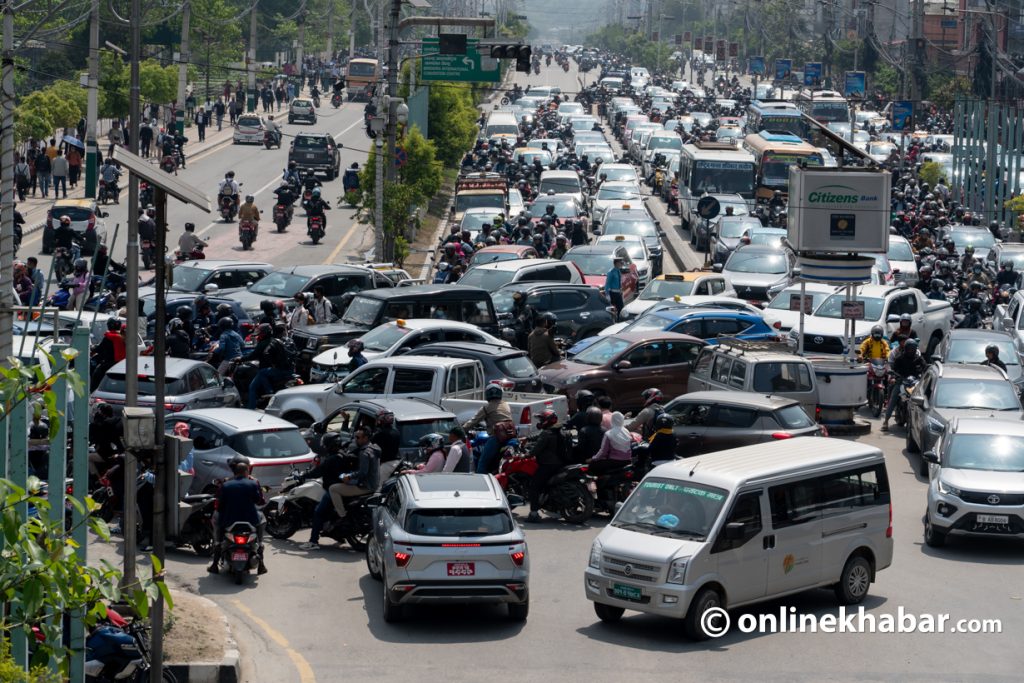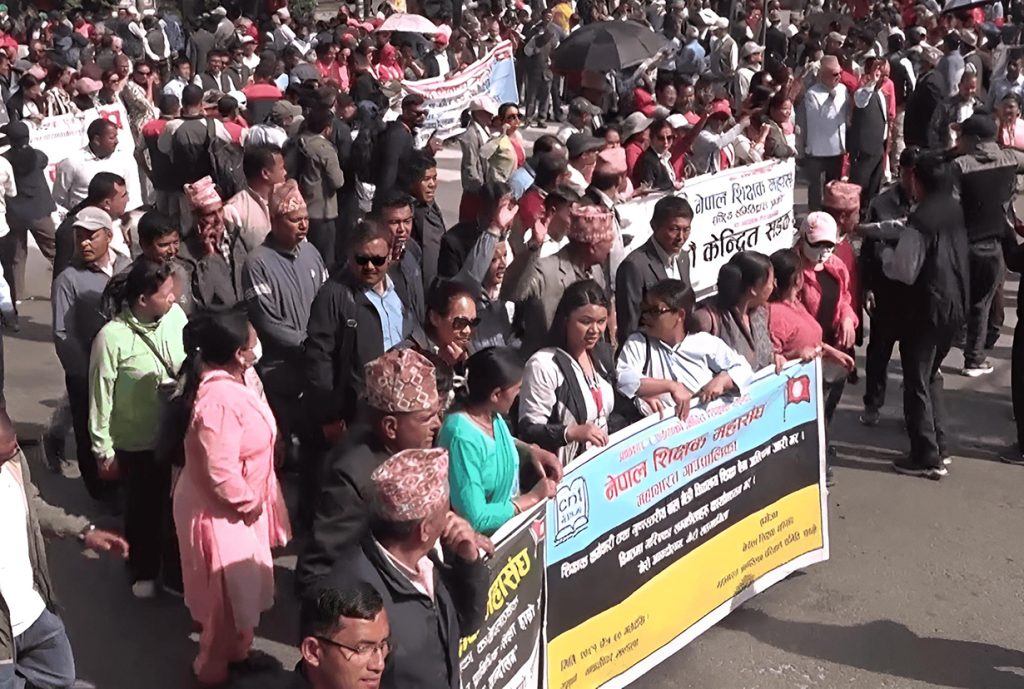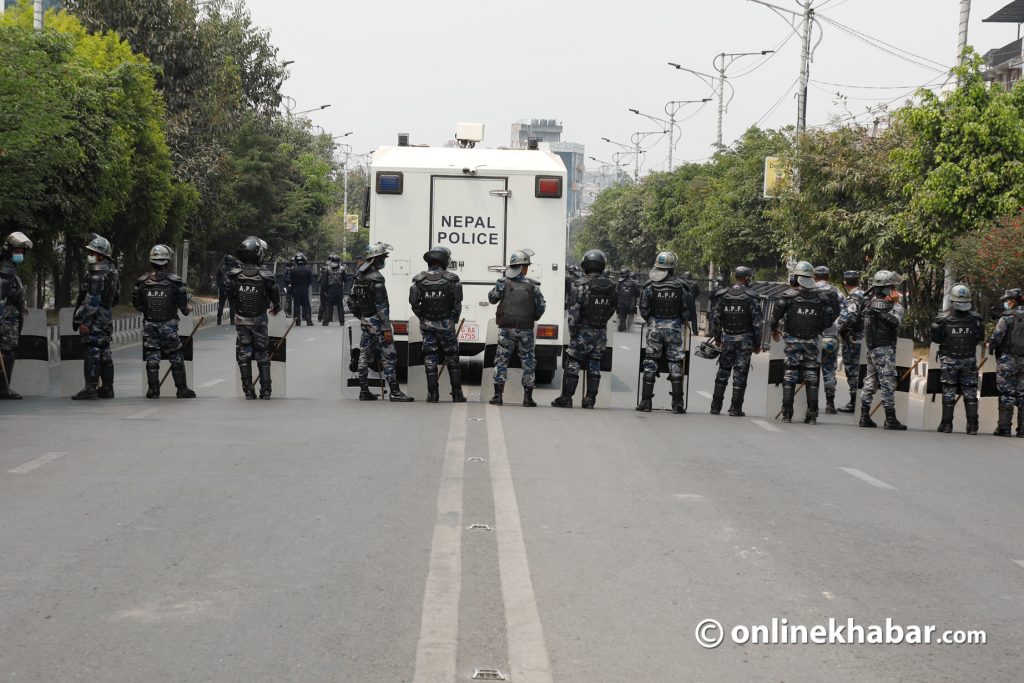
With the controversy over a Public Service Commission notice calling applications for 9,000 plus vacancies at the local level, Nepali political leaders and commentators are once again debating the relevance of reservation allocated to various social groups. Along with that, many issues about rights of the disadvantaged groups have come to the fore again.
Dalits, or ‘the untouchables’, constitute a significant section of the disadvantaged populations in Nepal. While many stakeholders associate this problem with Hinduism, Harvard scholar Suraj Yengde from India argues it is a global problem. Yendge claims he has understood multiple dimensions of the issue as he spent a miserable childhood in a Dalit settlement in Maharashtra before he got a scholarship to study at prestigious international institutions like Harvard Kennedy School.
Yengde was recently in Nepal to discuss his new book ‘Caste Matters’. He talked to Onlinekhabar over his growth into a global Dalit scholar and his thesis that an independent global Dalit movement is needed to solve the global issue.
Excerpts:
How did you rise from an underprivileged young boy to an international scholar?
My story reflects the story of most of the Dalits in India and South Asia. Different people came into my life in different life. The most important person in my life was my father, who was a peon at a private bank. As an elder child, he had to take many responsibilities. But, he was really devoted to the social movement of Dalits. He was associated with various organisations. He was educated up to the ninth grade only, but he was learned beyond educational qualifications. He was an activist who was interested in empowering his community.
As a Dalit, the only option you have, except doing your traditional occupation, is education. If you don’t pursue education, you go back to your caste-centered traditional job such as cleaning bathrooms and toilets, doing manual labour.
We belong to a caste called Mahars, we were traditional village servants, not limited to one specific job, but doing all kinds of menial jobs like cleaning the carcass of dead animals. But Mahars were also like militants; they fought against the Brahmins.
Hence, my father decided to educate me because I could have ended up like every other member of my community doing menial jobs. Or I could have turned into a criminal like a pickpocket if not educated.
But how did you pursue your education despite your miserable economic condition?
I grew up below the poverty line. Five members of our family lived in one small room. But, my father wanted to educate his children in an English medium school. All his colleagues did not take it well. They said to him, “You are just a bank peon. The school fee is more than your salary. How can you afford it?” Paradoxically, the manager of my father’s bank had also enrolled his son in the same school. He was my classmate.
Every week, we had a sports hour at school. I did not have additional shoes, so would wear my school shoes for football and other sports. I only had two socks, and they had to be washed again. The same with clothes; it rained the next morning you washed them, you would have to go to the school in wet clothes. Further, if you did not wear your school uniforms, they would ask you to go back home.
But I liked my school because home was not the place that I wanted to live. There was sewage running outside, and it smelled foul every day. Women would be fighting. There used to be filthy abuses. People were literally beating each other. The school was an escape from every such trauma.
So how did your father pay your tuition fees which were higher than his salary?
My education was also supported by my uncles, paternal as well as maternal uncles. My mother would frequently go to sit with her brother and ask him to support me. Because the brother-sister bond is deep in our culture, he would support me. Also, we borrowed money. My mother had one mangalsutra that she always put in pawn to take loans for me.
But still, I could not participate in recreations and other activities in the school. It was a kind of limited education. I used to feel ashamed of my status. I used to lie to my friends about my dad’s profession because they were people of high castes. I used to tell them that he was a bank clerk. In fact, he was a servant to their parents and I didn’t want my schoolmates to know that.
Till when did you remain ashamed of your identity? When did you gather the courage to feel that you had to talk about it?
I got a scholarship to study abroad and went to England for a master’s in law. My specialisation was human rights law. While doing research, I saw that the problem of untouchability was across the continents, in Africa, in Europe, in South Asia, in North and Latin Americas. But, I realised the research has not been done; and hence I had thought the problem I was grappling with was my personal problem, but a structural one.
It was in 2011 only. Since then, I felt good because I was not alone.

Besides that it was a global problem, what were other highlights of your learning and recommendations to cope with them?
We have rejected the humanity of the Dalit population. We have not given them a desired equal respect.
To solve it, the Dalit voice needs to be prioritised. The Dalit women, doubly or triply oppressed, need to be brought to the front. We have to look in a mirror that we have never seen ourselves in. It is important if we want to go to the next level of human achievement. As long as caste system remains there, we cannot go beyond the medieval-era society; we cannot become modern. Even though we have fashionable clothes, our minds will be still rooted in the medieval era thinking.
So far, the cosmetic change has happened, but not the structural one. For that to happen, we have to move away from the medieval-era thinking. If we carry that, our modernity will hit a wall, it will not progress.
Right now, we need an autonomous Dalit identity movement which also makes other caste groups feel that they also need to be a part of it.
Can you please go back and explain what did you mean by the medieval-era thinking and what is the thinking that you want to replace it with?
Nepal still practises untouchability. It was created in the past to make sure that one group has supremacy over another, to make sure that the people working in the farms and fields remained there for generations. The caste system gives it a sanction. In the South Asian society governed by the Hindu ideology, the caste system becomes a religious authority.
If you want to think about the medieval era thinking, think about how many Dalit priests are there in temples of Nepal. How many Dalit politicians are there in Parliament? How many Dalit bureaucrats are there in policy-making positions? How many Dalit independent media enterprises do exist? More importantly, how many Dalits are valued for what they are beyond their caste? You get very negative answers to these questions.
You mean to say the caste system is a problem of the Hindu society.
What I am advocating right now is the caste problem is a global problem. The term itself is a Portuguese term, meaning ‘division’. If you go to any society, there are structural divisions historically. Muslims, Buddhists, and people believing in every other religion that trusts in the idea of supremacy practice caste. Supremacy exists in Europe also, for example, white supremacy. For me, there is a global Dalit and there is a global Brahmin.
But, there are similarities and differences between these practices. The first similarity is the historic form of oppression continues. The second, it is based on one’s birth; whichever family you are born to defines your lifetime. The third is, it’s structural; structures have been brought in. Fourth, it is personal, people practice caste discrimination based on their personal understanding. Fifth, the system is retained in various cultural forms. Then of course, economically and politically, they are at the bottom. The struggle for economic rights has to be a part of Dalit movements…

Exactly! Many sociologist scholars and the public believe that caste is an outdated issue and it doesn’t have any effect anymore. What matters more is your control over socioeconomic resources, decided by your class.
This is a very farcical argument. It is trying to dissuade and befool the public. Every society that is economically divided has other structures that make the divisions possible. The divisions are not only results of different amounts of control over the capital; the division thrived because the caste system already existed.
If the caste system is outdated, why do the Brahmins still continue to retain their control over the spiritual wealth? Why do they still have a monopoly over the temples? Those who believe that the caste system is outdated have to give up the privileges they had because of their caste.
The caste system is very much intact and it needs to be seriously handled.
But how can you claim that Brahmins and other people have caste privileges? They too have to do a lot of struggles if they don’t have control over socioeconomic resources. Instead, Dalits have privileges in the form of reservation.
In a caste-based society, if you are a Brahmin, you are already 10 steps ahead. Your network is already set up. The very element of being a Brahmin carries a certain privilege. You are not brought up with the ideology of being inferior. You are always taught to rule and command. You are taught to walk in confidence. It’s such an enormous privilege that nobody can take away from you.
Imagine some Dalits living in your community, whose parents are living as servants at other people’s houses or cleaning the sewage of their community. What are these parents going to teach their children? What is the future they will offer to them? They don’t have a vision because they are not taught how to think. More importantly, they don’t have idols–whom they are looking up to where the father is a drunkard and there are altercations with other people in the community?
Caste system takes away confidence from every Dalit person. Compare that with being a Brahmin, who has a monopoly over education for thousands and thousands of years.
So you still believe that a reservation based on caste categories in public service and other sectors is still relevant?
The reservation system is meant to uplift the communities who are not at a similar level. It is an opportunity for all of us to make sure that people who never had access to the resources can come with us. Through reservations, we have a golden opportunity to meet fellow people to come onto a similar plain and have camaraderie.
But now, some people are fighting against the reservation or affirmative actions. These are people who lack confidence, who don’t have merits. If you have merit, come what may, you will still survive. Why are you getting insecure about the people who have come to school for the first time? If you have merit, you should be able to compete with the people of any quality, any talent, and any background.
The reservation system should be more radical. It should go beyond giving seats. It should create more positive discriminations. We should make sure that the system supports the persons belonging to the lower caste to go to the top.
But focusing on the reservation, we are missing a lot. Reservation and other progressive measures should go together. We need more than a reservation.

Should the reservation system continue indefinitely or do we need to set a time limit?
Time limit is subjective. We can say, “Tomorrow, we will finish untouchability.” If we finish it tomorrow, no reservation is needed. But, it’s only imaginative thought. It is just an attempt to befool everyone.
Let’s say, the caste system is a train passing through a village. Its speed is so high that many people are missing out. Reservation provides the people with a mechanism to catch up on the train. But that does not take you to the final destination. Reservation and redistribution of resources have to go side by side. We will need at least 10 to 15 measures like the reservation for us to reach the common goal.
Ending reservation is not a solution. If you want to have equality, there should be a proportional representation of every caste group. Say, if there are 12-13 per cent Brahmins, give them 12-13 per cent reservation. Let their communities get represented proportionally.
Otherwise, it will only end at the moment when you stop treating other Dalit persons as sub-humans, as others not belonging to our group. Don’t worry about ending the reservation. The moment equality will be established, the Dalits themselves will get rid of it.






